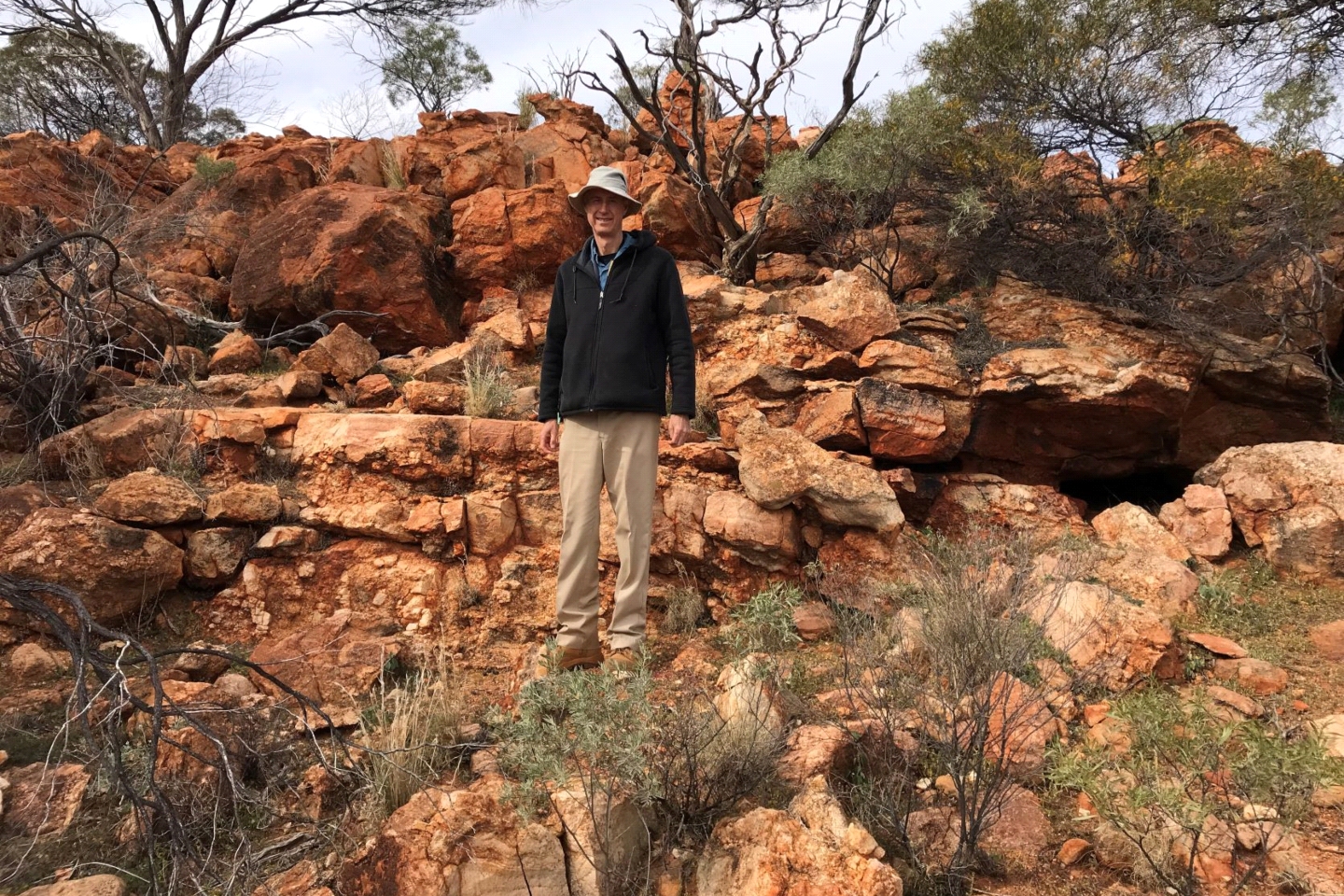St George Mining shares shot up nearly 40 per cent at one point during intraday trading on news of significant lithium potential at the company’s Mt Alexander project 95km west of Leonora in WA. Initial field mapping and rock chip sampling at the project has confirmed numerous outcropping pegmatite dykes occurring in swarms that extend over 15km within its ground.


St George Mining shares shot up nearly 40 per cent at one point during intraday trading on news of significant lithium potential at the company’s Mt Alexander project 95km west of Leonora in WA. Initial field mapping and rock chip sampling at the project has confirmed numerous outcropping pegmatite dykes occurring in swarms that extend over 15km within its ground.
St George believes its east-west striking pegmatites lie within a regional corridor that also hosts the major ongoing lithium discovery by ASX-listed Red Dirt Metals at its Mt Ida project just 16km to the south-east.
Assays from an initial pegmatite rock chip sampling program have returned up to 157 parts per million lithium, 44ppm caesium, 125ppm tantalum and 0.6 per cent rubidium supporting the potential for lithium mineralisation to occur at depth.
In particular the company’s interest has been piqued by the high rubidium values as the element is a key indicator for potential lithium mineralisation in weathered environments.
Further systematic rock chip sampling and field mapping of the pegmatites is underway at the project as the company aims to finalise drill targets prior to firing up the rig before the year’s end.
So far the pegmatites have been mapped up to 15m wide — this combined with a 15km-strike-length leads the company to believe the dimensions could support a discovery of significant scale.
Notably, St George’s Mt Alexander project has traditionally been explored with a nickel-focus and has never been explored for lithium, leaving the door ajar for the explorer to possibly make a greenfields discovery in what has become another of WA’s lithium exploration hotspots.
St George Mining Executive Chairman, John Prineas said: “The results from our initial field work to scope the lithium potential at Mt Alexander are very encouraging and support a compelling case to accelerate exploration for lithium pegmatite mineralisation. We will advance the lithium exploration in tandem with drill testing several very promising, recently identified nickel targets.”
Given lithium’s centrality to the electric vehicle revolution and the fact that nearly all of Australia’s lithium is found within WA, securing ground with lithium potential in the western state has become a fierce contest in recent years.
In September 2021 Red Dirt, under its previous banner TNT Mines, managed to acquired Ora Banda’s 155-square-kilometre gold project with lithium potential 80km west of Leonora for $11 million.
Soon after, the newly acquired gold-focused asset became a lithium flagship project as a strong flow of assays began, including 21.7m at 2.11 per cent lithium oxide from 250m with spodumene confirmed by the lab as the dominant mineral.
Sailing under a spodumene sail, Red Dirt took its share price of $0.31 pre-acquisition to a high of $0.935 on November 9 last year. Today, Red Dirt shares are still sitting pretty around the $0.60 mark.
In July this year, Red Dirt announced an additional discovery of pegmatites with drill intersections going 4m at 1.1 per cent lithium oxide from 260m. Notably, the encounter materially expanded Red Dirt’s discovery zone in the direction of St George’s ground.
St George and Red Dirt aren’t the only explorers locking up land prospective for lithium at the edge of WA’s Goldfields region.
In April, Gina Reinhart’s Hancock Prospecting shacked up with the ASX-listed pair Legacy Iron Ore and Hawthorn Resources in a farm-in agreement into the Mt Bevan iron ore project immediately south of where St George spotted its pegmatites.
Whilst the farmors retain all non-iron ore rights, just last week, the farmee Hancock executed a deal enabling it to run its rule over Mt Bevan to assess its potential for lithium in addition to nickel and copper.
The competition doesn’t stop there either. In May, ASX-listed Zenith Minerals scooped up land immediately north of St George similarly citing high levels of rubidium and outcropping pegmatites in addition to anomalous lithium in the soils.
Whilst its not the only one competing in the region, St George sees its slice of potentially lithium-bearing pegmatites as the perfect complement to its ongoing nickel sulphide discoveries at the project.
Given nickel and lithium are both primary constituents of the electric vehicle battery cathode, the combination could be the whetstone to sharpen St George’s focus on the burgeoning industry of clean energy metals.
Is your ASX-listed company doing something interesting? Contact: matt.birney@businessnews.com.au












